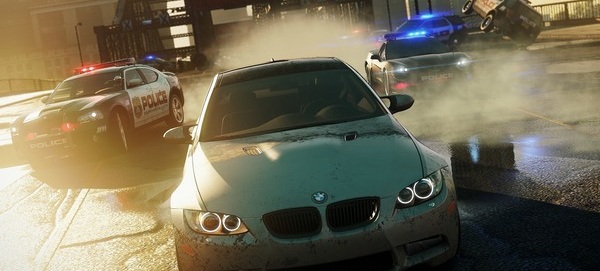Good news for all PC racing fans, as it seems that Criterion will further enhance the PC version of its upcoming arcade racer, Need For Speed: Most Wanted. In an interesting interview with games.on.net, Criterion’s Leanne Loombe revealed that the PC version of Need For Speed: Most Wanted will sport some exclusive graphical features and that DX11 will be offering 300% better performance than DX9.
As Loombe said:
“We’re primarily leveraging the increased efficiency of DX11 to give improved performance. The move to DX11 from DX9 has given us around a 300% improvement in rendering performance. This has enabled us to provide an improved image based lighting model over the console version, as well as allowing us to run with higher detail shadows and reflections.”
DX10/DX10.1 cards will be able to run the game in DX11 mode and benefit from these improvements, as the game won’t support both DX9 and Windows XP.
Loombe has also revealed the PC features that Criterion has implemented in the PC version of NFS: MW. The PC version will sport real-time ambient occlusion, as well as light scattering algorithms.
In addition, NFS: MW PC will feature a number of advanced graphical features including SSAO, light scattering, high dynamic range motion blur, high resolution textures, advanced specular lighting models, headlight shadow casting, enhanced VFX quality, and enhanced shadow quality levels.
Need For Speed: Most Wanted is currently planned for a November 2nd release on PC, X360 and PS3!

John is the founder and Editor in Chief at DSOGaming. He is a PC gaming fan and highly supports the modding and indie communities. Before creating DSOGaming, John worked on numerous gaming websites. While he is a die-hard PC gamer, his gaming roots can be found on consoles. John loved – and still does – the 16-bit consoles, and considers SNES to be one of the best consoles. Still, the PC platform won him over consoles. That was mainly due to 3DFX and its iconic dedicated 3D accelerator graphics card, Voodoo 2. John has also written a higher degree thesis on the “The Evolution of PC graphics cards.”
Contact: Email

